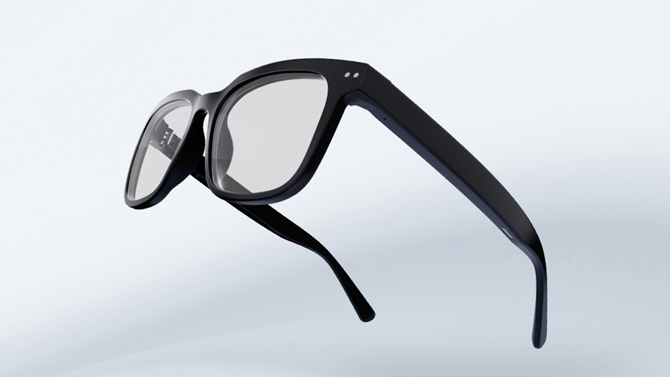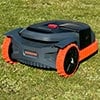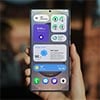Does combining glasses with hearing aids make sense? EssilorLuxottica, the world’s leading maker of eyeglasses, thinks so. Sometime later this year, the company will introduce Nuance Audio-branded prescription eyeglasses that incorporate over-the-counter hearing aids in the glasses’ temples.

The Nuance Audio glasses were developed in conjunction with Israeli startup Nuance Hearing, which EssilorLuxottica acquired last July.
“We know that when a person doesn’t hear clearly, it affects their personal relationships, their work, their confidence and perhaps most importantly their connection to the world around them,” explained Stefano Genco, head of Nuance Audio at EssilorLuxotttica. “Yet millions of people are choosing to make those sacrifices, either because they don’t want others to see hearing aids in their ears, they don’t want the discomfort in and around their ears, or they don’t want to spend upwards of $5,000. We have invested incredible R&D resources and smart glasses experience to tackle these roadblocks to adoption with one beautiful, comfortable and accessible pair of glasses where the hearing tech is invisible.”
To help make conversations clearer, especially in noisier situations such as crowded restaurants, the glasses will deploy beam-forming directional microphone technology to amplify sounds right in front of you, a 20-degree range that is designed to match your line of site, while dampening other ambient sounds. But instead of the traditional in-ear bud or rest-in-canal (RIC) speaker hearing aid design, however, four tiny speakers are built into the Nuance Audio glasses temples along with six microphones to pick up directional and ambient sound. Nothing actually goes in your ear, and the Nuance Audio glasses merely look like thick horned-rim glasses.
Read more: What you Need to Know Before Buying OTC Hearing Aids
In a demo I received via a prototype, the glasses successfully amplified the voice of a person speaking in front of me while suppressing surrounding noise. The smartphone app will enable you to expand the amplified soundstage all the way to 360 degrees and will include at least three ambient pre-sets – Quiet, Crowd, and Open Air. Volume and other glasses’ functions also will be controllable via a pocket remote.
While the company will seek FDA OTC hearing aid certification, the Nuance Audio glasses/hearing aids will not be self-fitting, which means they will not include a self-administered hearing test and so are not designed to correct a specific wearer’s hearing issues. Instead, the glasses amplification is aurally tuned for a user via an app setup – you’ll hear 30 seconds of pink noise to gauge your general ear physiology, then the app asks you to speak at normal levels for 30 seconds to gauge your volume needs.
Unlike the company’s Ray-Ban Meta Wayfarers, the Nuance Audio glasses are not smart glasses. To provide optimum battery life, the Nuance Audio glasses include only Bluetooth Low Energy (BLE) to enable smartphone app control. The glasses will not wireless stream music, will not conduct handsfree phone calls, will not be Meta, Google Assistant, or Alexa-compatible, and will do not contain any AR/VR features – only sound boosting technologies.
With no battery-draining smart features, battery life for the Nuance Audio glasses is expected to be 8-10 hours, although the company is working to lengthen this by the time the glasses are available late next year. Charging time will be 2.7 hours via a special wireless Qi pad with magnets to create a firm charging seal. By comparison, the company’s Ray-Ban Meta Wayfarer smart glasses are rated to operate for 4 hours and require 75 minutes to fully recharge.
Fittings for Nuance Audio glasses with prescription lenses, including progressive and transition sunglasses lenses, will be available through yet-to-be-determined EssilorLuxottica’s retail locations and partner retailers; EssilorLuxottica affiliated U.S. retail locations include LensCrafters, Sunglass Hut, and Ray-Ban stores. Of course, they could also be worn with non-corrective lenses for those who prefer the style of glasses-based hearing assistance versus traditional hearing aids but don’t need the visual assist.
Initially, there will be three Nuance Audio models, all with thick dark frames necessary to house and hide the hearing aid technologies, each model available in two dark colors. EssilorLuxottica plans to sell Nuance Audio glasses both in single units and in pairs to enable consumers who wear both glasses and hearing aids all day to have a pair with freshly charged batteries always available. Expected to be included with the glasses are a wireless charging pad or case, a pouch for the charging pad/case, a glasses case, and a remote control. No pricing has been announced.
[Image credit: EssilorLuxottica]
Stewart Wolpin has been writing about consumer electronics for more than 35 years, including news, reviews, analysis and history, and has attended and covered nearly 50 Consumer Electronic Shows and around a dozen IFA shows in Berlin. For the Consumer Technology Association (CTA), he is an elector for and writes the official biographies of the annual CT Hall of Fame inductees, and is the keeper of the industry’s official history.













